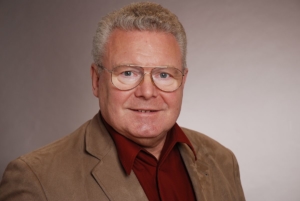Obituary for Prof. Wittko Francke. By Jan Bergmann
In Memoriam
written by Jan Bergmann
Professor Wittko Francke (1940 –2020)
Wittko Francke died on December 27, 2020. The scientific community loses a very productive and passionate researcher, a great colleague, mentor, and friend. His mother, a professor of forest mycology, and the love for nature which she passed on to him, were his great inspirations for his scientific career.
Wittko was born 1940 in Reinbek near Hamburg, Germany, where he grew up. He studied chemistry at the University of Hamburg (1968) and obtained the doctoral (Ph.D.) degree for his thesis about the aggregation pheromone of the bark beetle Xyloterus domesticus, carried out in the group of Prof. Kurt Heyns (1973). Afterwards, he was working as a scientific assistant at the Institute for Organic Chemistry in Hamburg. In 1979, he finished his “Habilitation” about the chemical communication in beetles, and was appointed Professor at the Institute of Organic Chemistry of the University of Hamburg (1985), where he worked until recently in teaching and research, even after his retirement. Wittko was deeply rooted in Hamburg, so when in 1985 and 1990, the universities of Giessen and Heidelberg, respectively, offered him a professorial chair, he declined both times.
Wittko’s research was focused on the chemical communication of insects, but he has also a fair share of contributions in Environmental Chemistry. In both areas, he made use of his unmatched skill of identifying compounds present in sub-microgram amounts in complex matrices, and of his ability to recognize relations between the structures of compounds. A colleague once called him the “Mozart of Molecules”, which summarizes eloquently the admiration many had for his work, which is documented in more than 450 scientific publications. At the beginning of his career, he made significant contributions to the pheromone chemistry of bark beetles, and later expanded his work to many other insect orders and beyond. Representative for his many achievements, two new classes of natural compounds were identified for the first time in his lab – the spiroacetals from bark beetles, and the 2,5-dialkylcyclohexan-1,3-diones from several orchid-hymenopteran pollinator complexes.
Recognition for Wittko’s work came soon and plentiful in the form of awards and honors: the Carl Christiansen Memory Award (1980), Silver Medal of the International Society of Chemical Ecology (ISCE)(1995), the Otto Wallach Medal of the German Society of Chemists (1996), Karl Escherich Medal of the German Society for General and Applied Entomology (2005), Honorary Doctoral degrees from the universities of Gothenburg, Sweden (1997) and Lund, Sweden (2005), and Honorary Lifetime Member of ISCE (2016). He was also active as an editor or associate editor of scientific journals (European Journal of Organic Chemistry, Journal of Chemical Ecology, Chemoecology), as the president of ISCE, and as a member or chairman of numerous committees. Moreover, he dedicated many hours of work and energies as the dean of the Department of Chemistry and head of the Institute of Organic Chemistry.
Wittko also left a large impact on the Latin American Association of Chemical Ecology from the very beginning.. Indeed, he was responsible for the opening conference during the 1st ALAEQ Meeting held in Uruguay in 2010, and participated actively in its various other meetings afterwards. Research on chemical ecology topics developed in the region also benefited from his collaboration, and many Latin American colleagues can testify about his enthusiastic support and advice. He also contributed with enthusiasm to the formation of Latin American students by giving short courses during his many visits to research groups in the region. It is worth highlighting that an online symposium to celebrate his life and legacy will be held on April 3rd, 2021 (https://ucdavis.zoom.us/webinar/register/WN_oA9EbHkAQyeh4vPoA9EFDg).
But, Wittko was not only an outstanding, hard-working scientist. He was a loving husband, father of two children, and grandfather of 4 grandchildren. He was also a person with incredible kindness and generosity. He never hesitated to serve his friends the best wines he had carefully cellared for many years, together with delicious food prepared with mastery. He enjoyed bringing people together and deeply cared about his students, many of which stayed in touch with him long after they left his research group. His legacy will live on in those of us he has inspired and guided in so many ways. Our thoughts are with his family.
Rest in peace, dear Wittko!
